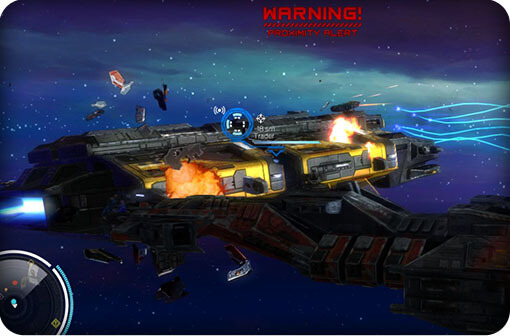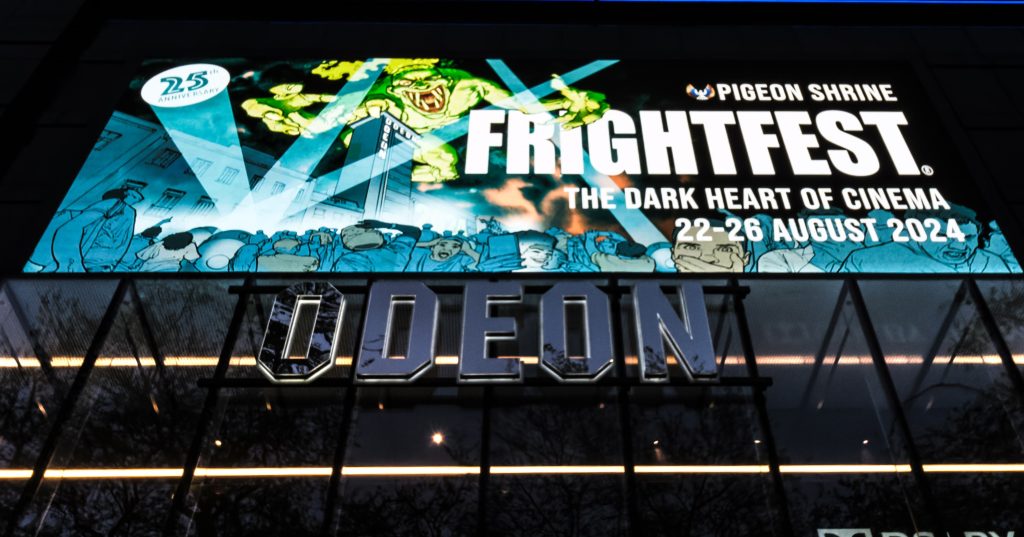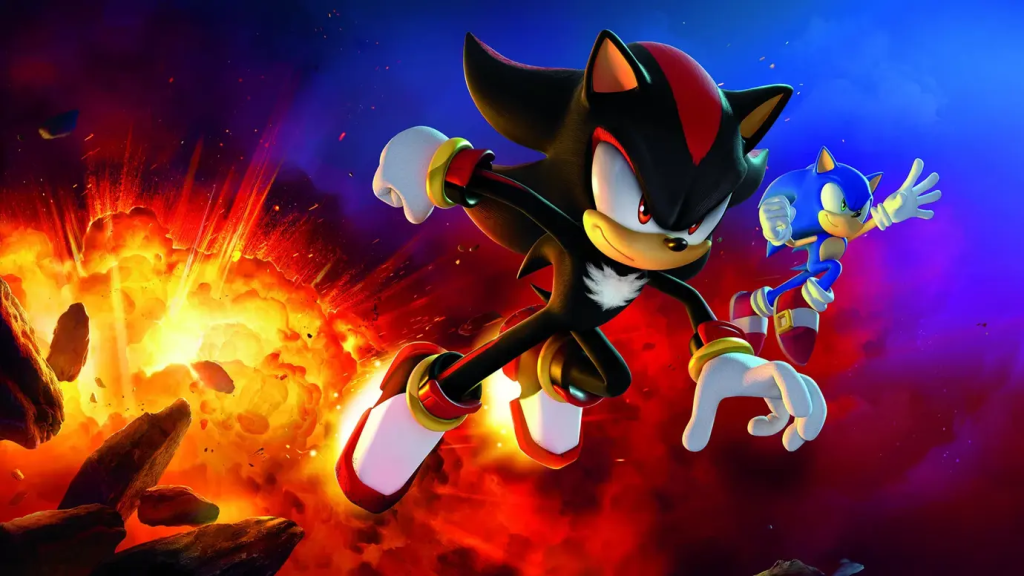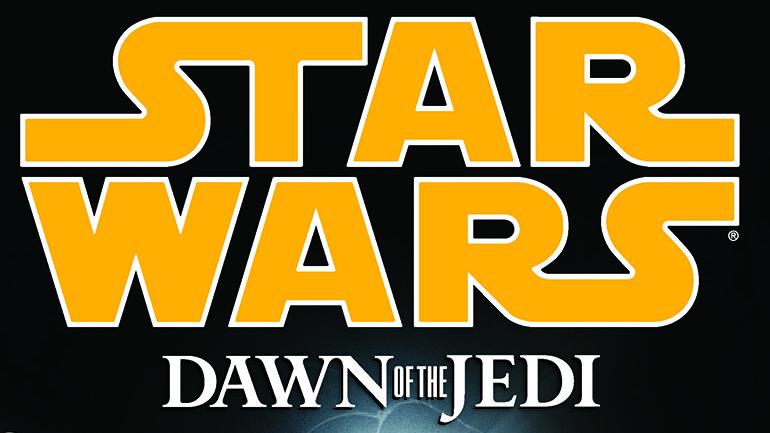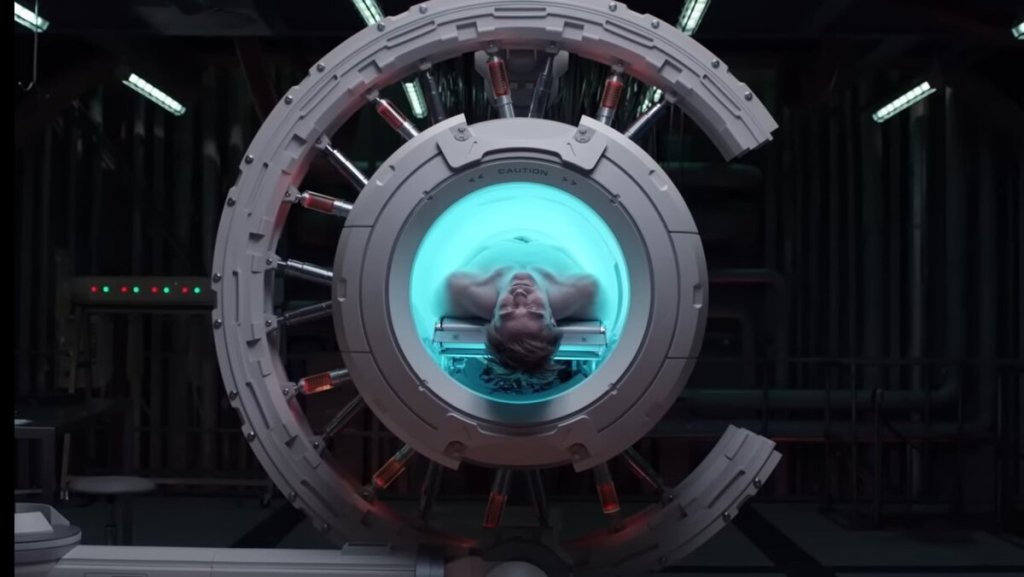
Rebel Galaxy is a big departure by developers Travis Baldree and Erich Schaefer, whose previous work resulted in the seminal Torchlight duology and the initial success of Blizzard North. Rather than embracing the grim darkness of Action-RPGs involving demons however, this time their work is more Elite: Dangerous than it is Diablo. The setting this time is among the stars, where players are tasked with trying to earn their way in the galaxy however they see fit. With a mysterious gift offered from the start and universe of opportunities before them, just how they’ll survive is up to the player to decide. Offered six hours to play through and preview this new game, here’s a few thoughts on the pros and cons of what’s seen so far.
The main story here is the same kind of off-hands storytelling which worked so well with Axiom Verge; interesting enough to be engaging but never so much it seemed to be strangling the game for those not interested. While the opening missions to each port of call are more general tutorials to help players get to grips with the mechanics, even these can be quickly ignored and skipped. You’re offered an old beaten up ship, given some indication of an old relative’s wishes, and then let loose upon the galaxy. When and how you follow it is entirely up to you, and it avoids the mistakes of Skyrim by never trying to rush you into following the story above all else. If anything Rebel Galaxy encourages the exact opposite, urging you to spend as much time as possible between missions exploring, fighting and trading.
The galaxy itself quickly falls into a very interesting vibe, with the guitar soundtrack quickly setting up what’s effectively Farscape’s universe if it were populated with Starcraft’s Terrans. The visual aesthetic of most vessels and ships are decidedly industrial, with many stations and vessels retaining the kind of scrap-ugly look you’d expect of a universe prizing functionality over aesthetic. Despite this, the various vessels are a wide mixture of curious and very interesting designs, with many of the smaller fighters especially offering a variety of strange classes to keep an eye out for. Such robustly robotic designs heavily contrast against the beauty of the setting itself; with countless worlds of varying types, distant star fields and glistening mineral rich asteroids adding a sense of bleak wonder to a harsh galaxy. Oh and it is truly harsh.

Right from the very start it’s made evident that Double Damage had no intention of holding the player’s hand. Within less than half an hour of playing, you can go from a fight you can win with some assistance to the kind of unstoppable meat grinder you’ll have no hope of surviving. As expected for a game which freely lists Wing Commander: Privateer as one of its chief influences, even the starting area is heavily divided up in terms of power and influence. The local militia hold certain stations and systems with relative safety, while many others are under the iron rule of various petty kingdoms and pirate empires. Naturally turning a few of a faction’s ships into pin-wheeling hulks of burning plasma tends to make them strong enemies, and further missions can easily draw others to your side. These can range from combat orientated bounty hunting to somewhat more peaceful missions such as smuggling or dead drops.
Despite citing many of the big complex science fiction frontier games as major influences, Rebel Galaxy itself is considerably less complex. This is evident in the combat more than anywhere else, which is far from bad but certainly more arcadey than you might have been expecting. Fans of Assassin’s Creed Black Flag will soon feel right at home here. Treating space as an ocean (yes, meaning you have only a flat surface to travel upon rather than a truly three dimensional environment) your main method of attack consists of broadsides. It’s up to the player to carefully time and control when to fire them and account for range differences, rather than just spamming barrage after barrage. This is very much a game about massive capital ship engagements a-la Battlestar Galactica, and many battles quickly turn into precision slugging matches as you try to weaken a foe’s shields and armour at the right point.
Often more so than the vast dreadnoughts, the biggest threat in this game will often stem from the smaller attack craft often wielding some exceptionally meaty torpedo payloads. Capable of diving under, overhead and about you without the same restrictions, these ships operate in numbers and will prove to be a perpetual pain to take out with flank batteries. This leaves you relying upon other weapons at your disposal to keep them at bay, foremost being a set of dorsal and chin turrets to track enemy craft. Manned either by the player or AI systems, these are your Swiss army knife of weapons. While essential in keeping foes at bay and covering all angles, these can be outfitted with everything from cluster-missile launchers to beam weapons.

Despite being limited to a single plane, Rebel Galaxy never suffers due to this apparent limitation. The variety of foes on offer and the frantic pacing of combat never means you’re never missing the ability to pull loops or barrel rolls. With many of the complexities and vital tactical areas carried over from the big success stories behind this genre, within a few battles you’re more focused upon trying to constantly keep your ship angled correctly or timing missile strikes. Really, it quickly becomes Black Flag with more lasers and some more mechanically complex decisions.
While combat is a prominent part of the game, many of the more interesting points actually come from making money. While you can of course spend plenty of time hunting down the heads of criminals and serving as a mercenary, there’s often far more money to be made by playing the market. The game’s economy system is the best of its kind, with various ports offering varying prices for each produce, but unlike Sunless Sea’s static nature it fluctuates and changes. You’ll have various stations demanding surplus thanks to shortfalls, others finding themselves suddenly starved or resources and even disasters striking certain ones. Say a famine plagues one world, you might be able to rush there first with a hold full of foodstuffs to sell off at a chalked up price before others can take advantage of this. Such decisions and opportunistic acts are vastly helped by the network of bartenders found on each station, serving as informants and selling off information to any who ask.
Of course, even if you don’t want to play the market there’s even a few options to get around that. Outfitting your vessel with mining lasers means you can easily track down a few resource rich asteroid fields and scavenge ore en mass. The fact you can eventually buy up a small flotilla of vessels easily means you can leave certain ships to perform certain tasks as and when needed; allowing you to have dedicated sprint traders or mining frigates along with your warship. Well, either that or fly to where someone else is mining, blow up the mining vessel and then steal all of their hard work. Sadly though, there’s no option to pick up ejecting pilots and sell them on the slave market for bonus profit though.
While the game itself might be solid though, it does suffer from a few notable issues which become evident quite early on. The foremost among these is the way in which the galaxy is structured: It feels oddly empty. Say what you will about Bethesda’s open world games, but the likes of Oblivion, Fallout and others, but missions had promising narrative threads, random events and vibrant locations to keep things active. Here though, that’s unfortunately not quite the case.

While ports are plentiful and serve multiple roles from prisons to militaristic dictatorships and trade hubs, little inside them seems to reflect that. Upon parking your ship next to one, you’re greeted with the same view of a dry dock, the same menu system and even the same barman once you stroll inside there. There’s little real variation and even the missions themselves aren’t granted by NPCs so much as just a listed menu, lacking that shade of personality which can help make them seem important. This certainly isn’t helped thanks to a sadly limited variety of options, where you can end up with the same mission appearing three times at once. As a personal aside, this became so bad at one point that the same mission to destroy a prototype fighter immediately re-appeared upon completing that quest for the first time. What’s more is that the few random encounters seem to be the same, offering only the same two or three outcomes from a strange beacon to distress signals and pirate traps.
Such problems are only made notably worse thanks to just how sparsely barren the galaxy seems to be. Space is big to be sure, but so much of this one seems genuinely empty. You can fly at FTL speed for minutes at a time without encountering a single thing, and unlike other games there isn’t enough visual flare or stylish elements to distract from that. There’s no sense that you could bump into anything out there or have random events occur, surprising you and making the world far less static. After two hours of looking at the same stellar background, even those enthralled by this game are likely to feel just a little bored by the same distant purple nebula.
FTL travel itself can prove to be problematic as there’s little way to really estimate or correct for what’s ahead of you. The small mini-map will sometimes show flashes of hostile or friendly icons as you zoom by, but the earliest you’ll become aware of them is when you fly into a ship. While the game is merciful enough to automatically drop you out into sublight speed before slamming into something solid and very dangerous, that mechanic in of itself can provide problems. It can leave you appearing right next to a large squadron of hostile vessels and, due to the very same safety feature, you can’t just jump away while in close proximity to those same ships. You have to instead try to flee from them, which is made all the more difficult when pirate craft are accompanied by large groups of smaller torpedo boats which can both outrun you and rip you a new one. Fights you can’t win are often a welcome addition to these sorts of high risk games, but not so much when you can accidently fly right into them and have no way of quickly fleeing from their guns.
One other aspect which oddly hurts the game and makes it feel far emptier is thanks to each ship having a seemingly unlimited fuel supply. While you have to buy ordinance, fix the vessel and upgrade it, there’s never any worry about having enough petrol in the tank to reach your next destination. While some might welcome this, it removes much of the dangerous edge which was so much of a success in prior titles such as Privateer, giving it a Firefly style sense of desperation. If you are always trying to scrape together just enough money to keep flying, there’s more engagement and incentive to hunt down every last coin you can find. If anything this would help encourage some of the less combat orientated tasks, as getting into slugging matches with bigger ships would carry far more financial risk.
Finally, the actual options on offer often seem to be oddly lacking at many points. While you can occasionally bribe or barter your way out of situations, there’s no option to capture an enemy warship and sell it off for scrap. While there is obvious freedom from the start and a great deal of choice, it just seems to be lacking those small additional quirks which could help make the experience seem truly alive. You’re offered no moments to bribe pirates into switching sides, drawing enemies into rival territory to start a civil war, or even acting as a true highwayman to traders. There’s the skeleton of something truly great here, but it needs to be better fleshed out.
Ultimately Rebel Galaxy is a release which appears to be intentionally trying to present itself as Elite lite. It lacks some of the depth, complexity and detail found in other releases of its genre, but at the same time it streamlines and narrows down those same frustrations which may scare off players. With a sense of wonder, strong combat and a solid economic system this could prove to be the accessible space cowboy game many have sci-fi been waiting for.
REBEL GALAXY / DEVELOPER: DOUBLE DAMAGE GAMES / PUBLISHER: DOUBLE DAMAGE GAMES / PLATFORM: PC, PLAYSTATION 4 / RELEASE DATE: TBC 2015

